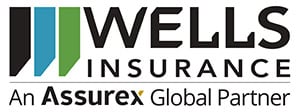What Should Employers Know About Popular Weight Loss Drugs?

The popularity of weight loss drugs has reached a fever pitch in the United States. This trend has made its way into the workplace, with employees increasingly asking about coverage for popular drugs used for weight loss, such as Wegovy. Other drugs intended to treat Type 2 diabetes, such as Ozempic or Mounjaro, are also in high demand for off-label weight loss use. As a result, employers are presented with the decision of whether to find plans that cover these expensive drugs or face potential negative attraction and retention repercussions in the coming years, if not already.
Overview of Popular Weight Loss Drugs
The recent string of popular weight loss drugs are types of glucagon-like peptide 1 (GLP-1) receptor agonists—medications originally prescribed to treat diabetes but have been shown to be effective in helping individuals lose weight. These drugs can potentially transform the health of millions of Americans by decreasing their weight by as much as 15%; this may help treat and address several weight-related conditions, including heart conditions, diabetes and musculoskeletal issues. These drugs work by lowering an individual’s blood sugar levels. While GLP-1 drugs have not been extensively tested on individuals with obesity, they have the side effect of sending fullness signals to the brain, which produces an anti-appetite effect that can lead to weight loss. However, individuals may need to take these drugs indefinitely to maintain any weight loss benefits. Other side effects include nausea, vomiting and diarrhea.
While GLP-1 drugs like Ozempic and Mounjaro are currently only approved to treat diabetes, Wegovy was approved by the U.S. Food and Drug Administration (FDA) in 2021 to treat chronic weight management in addition to diabetes. Although Ozempic is not FDA-approved for weight loss usage, some health care providers have prescribed it to individuals who have difficulty losing weight through traditional means (e.g., diet). As of this writing, pharmaceutical company Eli Lilly is seeking FDA approval to use Mounjaro to treat obesity. On average, GLP-1 treatment costs more than $1,000 per individual each month.
Employer Considerations for Covering Weight Loss Drugs
Self-Insured Employers and benefits carriers have traditionally not covered weight loss drugs. Data from the International Foundation of Employee Benefit Plans revealed that only 22% of companies cover prescription weight loss drugs, although the percentage is higher for employers with 5,000 or more employees. In comparison, 45% of employers surveyed had plans that cover bariatric surgery, and 32% cover weight management programs. However, increased demand from workers and obesity concerns among U.S. adults are forcing employers to consider comprehensive obesity care benefits, including offering weight loss drugs and programs. A recent survey from Ro and the Obesity Action Coalition revealed that 51% of workers with obesity would stay at a job they didn’t like if they received obesity treatment coverage, and 44% would change jobs to obtain coverage for obesity treatment. Therefore, while weight loss drugs may be extremely costly, they may help strengthen employers’ attraction and retention efforts.
 Prescription drugs typically drive a large percentage of an organization’s health care spending. Adding weight loss drugs to a health plan would likely substantially increase an employer’s health care expenses, especially since using drugs like Ozempic to manage weight loss is extremely expensive. Additionally, because most GLP-1 drugs aren’t FDA-approved for weight loss, most insurers will not cover them when used for that purpose. If they are not covered by health insurance, workers must pay out of pocket to use the drugs for weight loss. Further, most health care professionals will not prescribe these drugs for weight loss unless an individual is obese—meaning they have a body mass index of 30 or more—and has difficulty losing weight using traditional methods. Some health care providers may prescribe GLP-1 drugs to individuals with obesity if they also have weight-related health conditions, such as high blood pressure.
Prescription drugs typically drive a large percentage of an organization’s health care spending. Adding weight loss drugs to a health plan would likely substantially increase an employer’s health care expenses, especially since using drugs like Ozempic to manage weight loss is extremely expensive. Additionally, because most GLP-1 drugs aren’t FDA-approved for weight loss, most insurers will not cover them when used for that purpose. If they are not covered by health insurance, workers must pay out of pocket to use the drugs for weight loss. Further, most health care professionals will not prescribe these drugs for weight loss unless an individual is obese—meaning they have a body mass index of 30 or more—and has difficulty losing weight using traditional methods. Some health care providers may prescribe GLP-1 drugs to individuals with obesity if they also have weight-related health conditions, such as high blood pressure.
As more employees ask their employers for benefits to cover these drugs, some organizations are requiring employees to participate in lifestyle modification programs as a prerequisite for coverage, while others are asking employees to participate voluntarily. According to a recent survey of over 150 employers and health by pharmacy benefit consulting company Pharmaceutical Strategies Group, 22% of employers who offer plans that cover FDA-approved weight loss drugs require employees to participate in a lifestyle modification program to be eligible for the drugs. Further, many carriers employers are placing limits on coverage of weight loss medications in terms of either dollars or duration of treatment. Some employers are exploring alternative approaches to providing weight loss benefits to employees, including covering psychology-based weight loss programs like Noom to support employees in losing weight. In some cases, these programs offer prescriptions for obesity drugs, like Wegovy, for approximately $120 per month, as well as cheaper weight loss medications that can help reduce food cravings.
Can Health FSAs and HSAs Be Used for Weight Loss Programs and Drugs?
Health flexible spending accounts (FSAs) and health savings accounts (HSAs) are tax-advantaged accounts that can be used to pay out-of-pocket costs for qualified medical expenses that are not covered by a health plan. Qualified medical expenses must be incurred primarily to alleviate or prevent a physical or mental defect or illness. Expenses that are merely beneficial to general health are not qualified medical expenses.
In general, weight loss programs and drugs are not qualified medical expenses if the purpose of the weight loss is the improvement of appearance, general health or sense of well-being. However, if the weight loss is a treatment for a specific disease diagnosed by a physician (e.g., obesity, diabetes, hypertension or heart disease), these costs may be considered qualified medical expenses that can be reimbursed tax-free through an HSA. A health FSA may also pay or reimburse these costs, depending on the plan’s rules concerning eligible expenses.
 The following weight loss expenses are types of qualified medical expenses that a health FSA or an HSA may reimburse:
The following weight loss expenses are types of qualified medical expenses that a health FSA or an HSA may reimburse:
- Weight loss drugs that are prescribed for a medical condition
- Weight loss counseling or membership in a weight loss group when recommended by a physician to treat a medical condition
Qualified medical expenses do not include membership dues for a gym, health club or spa, but they may include separate fees charged for weight loss activities if the treatment is for a specific disease diagnosed by a physician. Also, the extra cost of diet food or beverages is not a qualified medical expense that can be reimbursed by a health FSA or HSA on a tax-free basis unless the food or beverage does not satisfy normal nutritional needs and is needed to alleviate or treat an illness (as substantiated by a physician).
Employers can also explore these government resources for more information:
- IRS FAQs on medical expenses related to general health, nutrition and wellness
- IRS Publication 502, Medical and Dental Expenses
- IRS Publication 969, Health Savings Accounts and Other Tax-Favored Health Plans


.png)